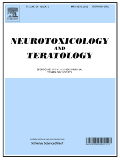
INTERNATIONAL JOURNAL OF DEVELOPMENTAL NEUROSCIENCE
Scope & Guideline
Driving Knowledge in Developmental Biology and Neuroscience
Introduction
Aims and Scopes
- Neurodevelopmental Disorders:
The journal emphasizes research on various neurodevelopmental disorders such as autism spectrum disorder, ADHD, and developmental delays, exploring their etiology, pathology, and treatment approaches. - Behavioral and Cognitive Neuroscience:
A core focus lies on the intersection of behavior, cognition, and neurobiology, investigating how developmental factors influence cognitive functions and behavioral outcomes in children and adolescents. - Molecular and Genetic Mechanisms:
Research on genetic variants and molecular pathways related to neurodevelopment is a significant theme, providing insights into the genetic predispositions and biochemical processes affecting brain development. - Environmental Influences on Development:
The journal includes studies examining how environmental factors, such as maternal health, nutrition, and exposure to toxins, affect neurodevelopment and contribute to behavioral and cognitive disorders. - Animal Models of Neurodevelopment:
Utilization of animal models to study neurodevelopmental processes and the effects of various interventions is a prevalent methodology, allowing for controlled experimentation and mechanistic insights.
Trending and Emerging
- Neuroimmunology and Inflammation:
There is a rising interest in understanding the role of neuroinflammation and immune responses in developmental disorders, highlighting the importance of the immune system in brain development and function. - Technological Advances in Neuroscience:
Emerging methodologies, such as advanced neuroimaging techniques and brain-computer interfaces, are becoming increasingly prominent, allowing for more sophisticated analyses of brain function and structure. - Impact of Early Life Stressors:
Research focusing on the long-term effects of early life stressors, including maternal health and environmental factors, on neurodevelopment and behavior is gaining traction, emphasizing the importance of early interventions. - Interdisciplinary Approaches:
There is a growing trend towards interdisciplinary research that combines insights from genetics, psychology, and environmental sciences to provide a more comprehensive understanding of neurodevelopmental processes. - Focus on Gut-Brain Axis:
Emerging studies exploring the gut-brain connection and its implications for neurodevelopmental disorders are gaining prominence, reflecting a broader interest in how microbiota can influence neurological health.
Declining or Waning
- Traditional Pharmacological Interventions:
Research focusing solely on traditional pharmacological treatments for neurodevelopmental disorders has seen a decrease, possibly due to a growing interest in alternative therapies and holistic approaches. - Static Neuroanatomical Studies:
There is a noticeable reduction in studies that only describe static neuroanatomical changes without linking these changes to behavioral or cognitive outcomes, as the field moves towards more integrative approaches. - Generalized Neurodevelopmental Assessments:
The use of generalized assessment tools without specific contextual or individualized analysis has declined, as researchers are increasingly focusing on personalized approaches and specific biomarkers.
Similar Journals

DEVELOPMENTAL NEUROPSYCHOLOGY
Empowering Professionals with Key Neurodevelopmental InsightsDEVELOPMENTAL NEUROPSYCHOLOGY (ISSN: 8756-5641; E-ISSN: 1532-6942) is a pivotal peer-reviewed journal published by ROUTLEDGE JOURNALS, TAYLOR & FRANCIS LTD in the United Kingdom. Since its inception in 1985, this esteemed journal has been dedicated to advancing the understanding of developmental processes that influence neuropsychological outcomes in children and adolescents. With a focus on the integration of psychological and neuropsychological perspectives, it serves as a vital resource for researchers, clinicians, and educators alike. The journal's current impact factor and its placement in the third quartile for both Developmental and Educational Psychology and Neuropsychology categories underscore its significance in the field, as it ranks in the 45th percentile in both Scopus ranks. While DEVELOPMENTAL NEUROPSYCHOLOGY does not offer open access, it presents crucial research findings and theoretical advancements that cater to professionals seeking to deepen their knowledge and application of developmental neuropsychology until 2024. By fostering dialogue among scholars and practitioners, this journal contributes meaningfully to the ongoing evolution of clinical practices and educational strategies targeting neurodevelopmental trajectories.

Behavioral and Brain Functions
Shaping the Future of Neuroscientific InquiryBehavioral and Brain Functions is a leading Open Access journal published by BMC, dedicated to advancing the field of behavioral neuroscience, cognitive neuroscience, and biological psychiatry since its inception in 2005. This esteemed journal, based in the United Kingdom, has established itself as a vital resource for researchers and professionals, boasting a remarkable influence demonstrated by its Q1 and Q2 rankings across multiple relevant categories. With its commitment to providing unrestricted access to high-quality research, the journal facilitates the dissemination of significant findings in understanding the complex interactions between behavior and brain function. The journal ranks impressively within the Scopus database, positioning itself among the top-tier publications in its categories, making it an essential platform for academic discourse and innovation. As it converges through 2024, Behavioral and Brain Functions continues to play a crucial role in shaping the forefront of neuroscientific inquiry, inviting contributions that challenge our understanding and promote further exploration in these dynamic fields.

DEVELOPMENTAL NEUROSCIENCE
Exploring the Complexities of NeurodevelopmentDEVELOPMENTAL NEUROSCIENCE, published by KARGER, is a vital academic journal dedicated to advancing the field of neurodevelopmental research. Since its inception in 1978, this journal has been instrumental in disseminating high-quality studies that explore the complexities of brain development and function throughout the lifespan. With an impact factor that places it in the second quartile (Q2) of Developmental Neuroscience and Neurology categories, it ranks among the top publications in its field, offering valuable insights for researchers, clinicians, and students alike. Though primarily subscription-based, the journal remains committed to fostering academic discourse and collaboration through its extensive repository of original research articles, reviews, and case studies. The journal is located at ALLSCHWILERSTRASSE 10, CH-4009 BASEL, SWITZERLAND, and its scope spans critical areas of inquiry within developmental neurology, providing a platform for emerging ideas and methodologies. As such, DEVELOPMENTAL NEUROSCIENCE serves not only as a critical resource for seasoned professionals but also as an enriching educational tool for the next generation of neuroscientists.

Developmental Cognitive Neuroscience
Exploring the intricate ties between cognition and neural development.Developmental Cognitive Neuroscience is a leading interdisciplinary journal published by ELSEVIER SCI LTD, dedicated to advancing the field of cognitive neuroscience with a specific focus on the developmental aspects of brain function and behavior. Since its inception in 2011, this Open Access journal has continued to thrive, gaining significant recognition with a remarkable impact factor that places it in the Q1 category of cognitive neuroscience, ranking 22nd out of 115 in Scopus. This enhances its visibility and accessibility to a global audience, including researchers, clinicians, and students keen on exploring the intricate relationship between cognitive development and neurological processes. The journal embraces a wide array of topics, from the impact of early life experiences on cognitive outcomes to neurodevelopmental disorders, fostering an enriching platform for disseminating high-quality research and innovative findings. As it progresses towards 2024, Developmental Cognitive Neuroscience remains pivotal in shaping future research and understanding in the field.

JOURNAL OF DEVELOPMENTAL AND BEHAVIORAL PEDIATRICS
Advancing pediatric knowledge for healthier futures.JOURNAL OF DEVELOPMENTAL AND BEHAVIORAL PEDIATRICS, published by Lippincott Williams & Wilkins, stands as a pivotal platform for interdisciplinary research in the fields of pediatrics, psychology, and mental health. Established in 1980 and with a comprehensive coverage extending to 2024, this esteemed journal operates within the realms of developmental and educational psychology, medicine, and psychiatry, earning a commendable Q2 ranking in its respective categories as of 2023. Its overarching objective is to disseminate high-quality, peer-reviewed studies that address the intricate interplay between developmental milestones and behavioral health in children. Although it does not currently offer open access, the journal's influential presence in the scholarly community is underscored by its strategic positioning within the Scopus rankings, making it an invaluable resource for researchers, practitioners, and students committed to advancing the health and well-being of children and adolescents.

NEUROTOXICOLOGY AND TERATOLOGY
Exploring the intricate connections between neuroscience and toxicology.NEUROTOXICOLOGY AND TERATOLOGY, published by PERGAMON-ELSEVIER SCIENCE LTD, is a premier journal dedicated to advancing knowledge in the critical fields of neuroscience and toxicology. With a focus on the mechanisms of neurotoxic effects and developmental disturbances, this journal serves as a vital resource for researchers, practitioners, and students committed to understanding the complexities of neurotoxicology and its implications for human health. The journal boasts a solid impact factor and holds esteemed quartile rankings, being classified as Q3 in both Cellular and Molecular Neuroscience and Developmental Neuroscience, and Q2 in Toxicology as of 2023. Despite being a subscription-based journal, NEUROTOXICOLOGY AND TERATOLOGY is recognized for its authoritative peer-reviewed articles that encompass a broad spectrum of research from 1987 to 2024, making it indispensable for those who seek in-depth knowledge and current scientific discourse in the field. Its impactful position within Scopus rankings underlines its importance, with notable placement across various neuroscience and toxicology categories.

NEUROBIOLOGY OF LEARNING AND MEMORY
Bridging Neuroscience and Psychology for Deeper InsightsNeurobiology of Learning and Memory is a prestigious journal dedicated to the exploration of the neural mechanisms underlying learning and memory processes. Published by Academic Press Inc Elsevier Science, this journal boasts a strong reputation within the field, as evidenced by its impressive impact factor and high quartile rankings in multiple categories, including Q1 in Behavioral Neuroscience and Q2 in Cognitive Neuroscience. Having provided a platform for groundbreaking research since its inception in 1995, the journal aims to disseminate influential findings that further our understanding of cognitive processes, shaped by robust empirical studies and theoretical developments. Researchers and professionals in neuroscience, psychology, and related disciplines will find invaluable insights and advancements that underscore the journal's commitment to fostering knowledge and innovation within these fields. While it currently operates under a subscription model, its comprehensive coverage of crucial topics positions it as a vital resource for those engaged in the intricate study of learning and memory.

COGNITIVE DEVELOPMENT
Advancing Understanding in Developmental PsychologyCognitive Development is a prestigious academic journal published by Elsevier Science Inc, focusing on the critical area of developmental and cognitive psychology. With an ISSN of 0885-2014 and an E-ISSN of 1879-226X, this journal serves as a vital platform for the dissemination of innovative research, theories, and methodologies from 1986 to the present, with the latest articles contributing to a comprehensive understanding of cognitive processes in children and adolescents. Positioned in the second quartile (Q2) of both the Developmental and Educational Psychology and Experimental and Cognitive Psychology categories, Cognitive Development holds an essential place in shaping contemporary psychological research, boasting robust Scopus rankings of #175/360 and #90/165 in its respective fields. Though not an open-access journal, it provides valuable insights and rigorous studies essential for researchers, professionals, and students engaged in the intricate processes of cognitive development. Whether you're looking to publish significant findings or simply stay updated on the latest advancements, Cognitive Development is an indispensable resource in the psychological community.

Journal of Behavioral Education
Empowering Educators with Research-Driven InsightsThe Journal of Behavioral Education, published by SPRINGER, is a prestigious academic journal that serves as a vital resource for researchers and practitioners in the fields of developmental and educational psychology. Established in 1991, this journal has consistently contributed to the understanding of behavioral education through innovative research, theories, and practices. With an impressive Q1 ranking in Education and a Q2 ranking in Developmental and Educational Psychology, it is recognized for its significant impact, achieving a percentile rank of 78th in Social Sciences (Education) and 67th in Psychology. While the journal does not currently offer open access options, it is committed to disseminating high-quality studies that advance educational practices and enhance learning outcomes. The Journal of Behavioral Education is an essential publication for anyone dedicated to advancing knowledge in educational psychology and behavioral interventions.

BRAIN RESEARCH
Fostering breakthroughs in developmental and molecular biology.BRAIN RESEARCH is a premier journal published by Elsevier, specializing in the intricate domains of neuroscience, developmental biology, and molecular biology. Established in 1966, this esteemed publication has become a cornerstone for researchers, professionals, and students dedicated to advancing our understanding of brain function and disorders. With an impressive impact factor and a consistent presence in the Q2 quartiles across key categories—such as Developmental Biology, Neurology, and Neuroscience—it stands out as an essential resource for disseminating innovative research and pioneering insights. The journal's scope encompasses both clinical and fundamental studies, fostering a multidisciplinary approach to the complexities of neural systems. Although it is not an open-access journal, BRAIN RESEARCH provides a vital platform for sharing progressive findings that can inspire future studies and contribute significantly to the evolutionary discourse in neuroscience. Based in the Netherlands, at RADARWEG 29, 1043 NX AMSTERDAM, BRAIN RESEARCH continues to shape the landscape of neuroscience research, inviting submissions that explore the latest discoveries and therapeutic strategies.